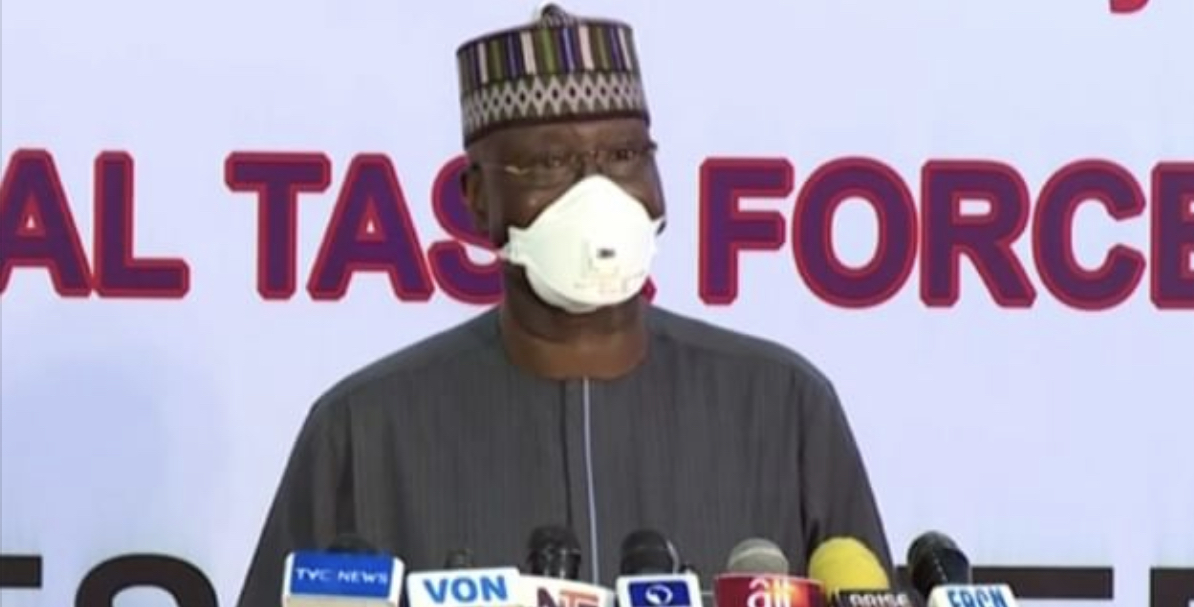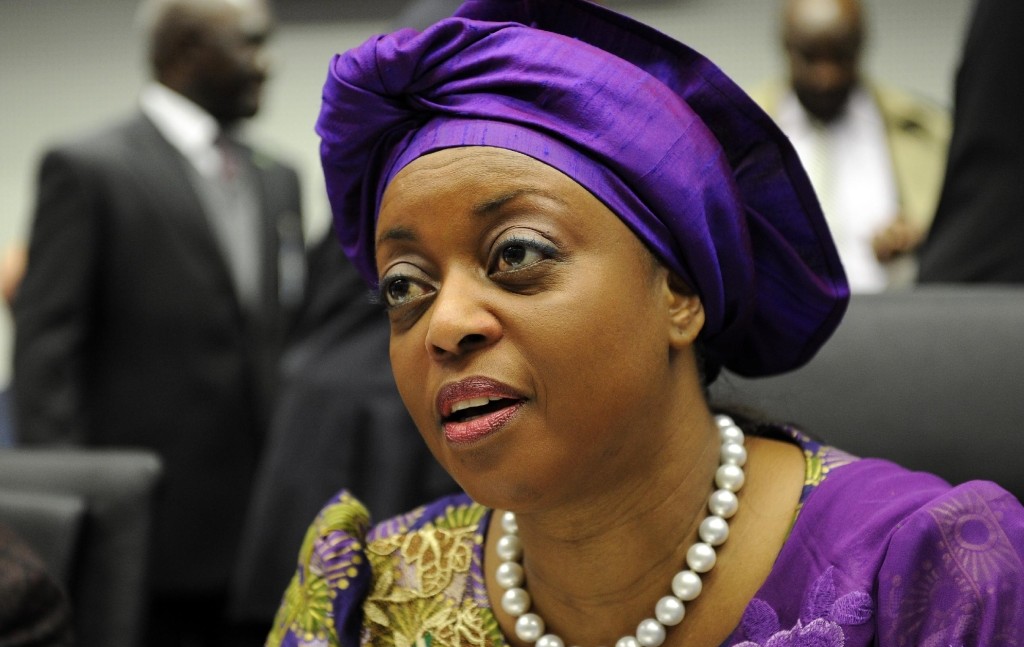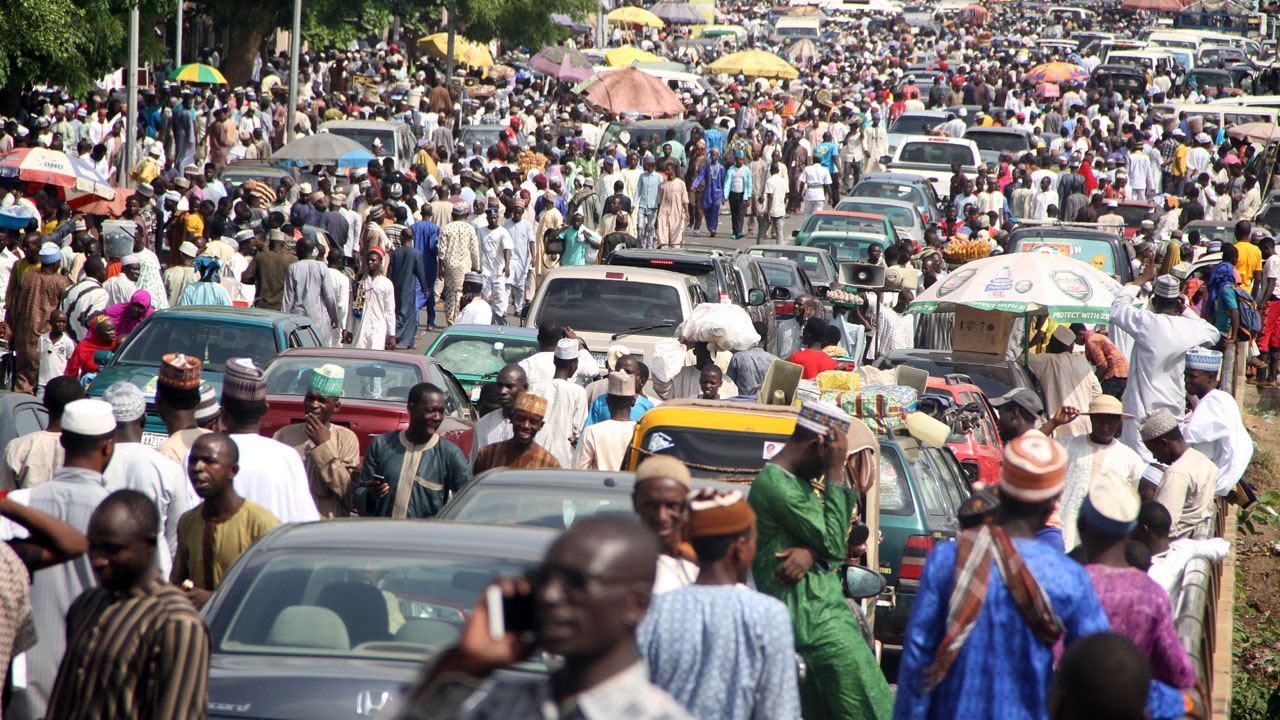PTF Calls For Decentralization Of COVID-19 Response To LGAs
Chairman of the Presidential Taskforce on COVID-19 (PTF) and the Secretary to the Government of the Federation, Mr Boss Mustapha has stressed the need to decentralized the Covid-19 response to the LGA level, identifying high burden LGAs and ensuring mapping of adequate support to rapidly trace, test and treat cases.
He also reminded Nigerians to be aware of the guidelines set for restricted opening of places of worship warning that compliance is important so as to avoid unwanted consequences that put the lives of people at risk of contracting COVID19.
Speaking at the Taskforce’s daily briefing Thursday in Abuja, Mustapha said that states need to drive aggressive campaigns to engage communities in order to address behaviour change and debunk misconceptions and stigma while traditional and religious institutions have a role to play in sensitizing communities about COVID 19.
He said, “In the last couple of days, the PTF has received inquiries on some aspects of the guidelines. We urge the utmost caution at all times. The PTF will continue to monitor the overall compliance to the easing of restriction well as the evolution of the outbreak. However, we will not hesitate to review as we progress, should the situation warrant, to avoid preventable risks of transmission.
The SGF recalled that the hydroxychloroquine in the on-going solidarity trial on effective treatments for COVID-19 was temporarily halted by the WHO on 25th May, 2020 pending review of all safety data by the Solidarity Trial Data Safety Monitoring Committee (DSMC) adding that the WHO, as part of efforts to find a cure to the COVID-19, has resumed the inclusion of patients in the hydroxychloroquine arm of the study.
Mustapha lamented that the Taskforce received reports about citizens refusing to help with contact tracing as well as going into isolation after testing positive, stressing that it is in the interest of everybody that contacts are traced so as to slow down the spread.
He said, “It is also in our interest to go into isolation facilities for close monitoring. A number of fatalities have been recorded due to the change in the condition of patients while staying outside the isolation facilities. Our appeal is that if agents of the state get in touch with you regarding testing, contact tracing activities, please cooperate. Also, let’s be prepared to be quarantined and to monitor our health for the onset of symptoms because it is important for us to break the chain of transmission and prevent the further spread of COVID-19 in our dear country.
am pleased to inform you that we have continued to receive support from our development partners.
The Chairman disclosed that the International Atomic Energy Agency (IAEA) donated test reagents, kits and a PCR Machine, noting that the equipment will go a long way in boosting our capacity.
Also speaking, Minister of Health, Dr Osagie Ehanire observed that the daily epidemic curve of confirmed cases shows a consistently rising trajectory with a corresponding increase in fatalities, but nothing compared with what is observed in some foreign countries.
He noted that the National Primary Healthcare Development Agency is discussing options and guidelines of supervised out-of-hospital isolation and care with some States, which is either home-based care or based in communal space, like school dormitories since schools are presently closed down.
Ehanire said that the Federal government will continue to engage states on scaling up sample collection and testing capacity all over Nigeria and urged healthcare workers to ensure they are properly protected with the appropriate PPE’s and have a high index of suspicion when treating patients.
The minister who warned against the use of antibody-based test kits for Covid-19 tests reiterated that only four of the kits have been evaluated by the Medical Laboratory Science Council of Nigeria and all four failed the validation tests.
He said, “No antigen test kits has yet been evaluated. This means that results obtained from these tests are not tenable for diagnostics, being deficient in sensitivity and specificity and are likely to give false results and mislead people. The NCDC certified laboratories in Nigeria use WHO recognized PCR testing methods which give a reliable result. Though expensive, this option is right and we have 30 laboratories deployed, with the aim of establishing at least one laboratory in every state”.
Ehanire said that the team deployed to Lagos and Ogun States, led by the ED of NPHCDA, Dr Faisal, has returned, with optimism about having gained a better insight into state-specific challenges and gaps and that a full report of findings will be ready next week while the Federal Ministry of Health team to Kano, Sokoto, Jigawa Bornu, Katsina, Gombe will submit their final report today. Preliminary reports show that the goals of the intervention were met.





